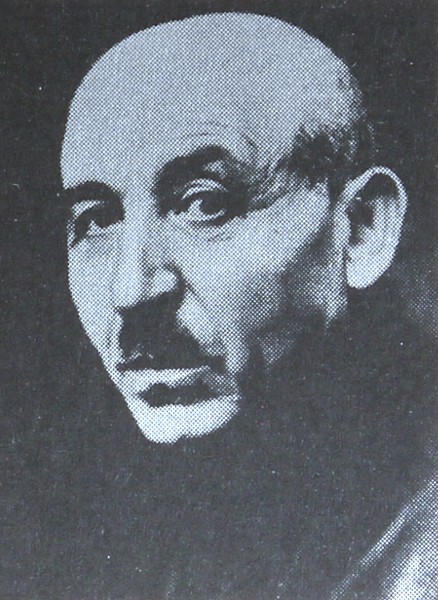Atabek Khnkoyan was one of the well-known authors of Armenian children literature in the first decades of the past century, and various works of him remain popular to this day. His friends loved him so much that in 1918 they baptized him with the pseudonym of Khnko Aper (“brother Khnko”; aper is a dialectal form of yeghpayr “brother”).
Khnkoyan was born on October 19, 1870, in the village of Gharaboya in the Lori region, renamed Khnkoyan after him. He received his primary education in his birthplace and then in Alexandropol (modern-day Gyumri). He started writing in his school years and published his first collection of poetry, entitled Poetic Attempts, in 1890. Between 1890 and 1910 he taught in various schools of Eastern Armenia. He moved to Tiflis (nowadays Tbilisi) in 1911, where he started teaching at educator Stepan Lisitsyan’s private school. He contributed actively to the press.
He was invited to Armenia in 1923, where he resumed his career as a writer and educator. He wrote several textbooks for Armenian children. He earned the titles of Emeritus Teacher and Emeritus Writer of Armenia in 1932.
Khnko Aper wrote mainly children’s literature: fables, legends, and lyric and narrative poems. His original writings and translations make a total of 120 books. The Peasant and the Bear (1909), The Thief Lamb (1911), The Groom-to-Be Mouse (1912), Parables (1917), The Streetcar in Yerevan (1934), How the Mice Fought the Cat (1936), and posthumous works like The Pig and the Crow (1940), The Wolf and the Cat (1957), and The Assembly of Mice (1957) are among his best-known works. Khnko Aper’s use of various dialects and popular language add to the charm of his prose and poetry. He was a skillful translator, who rendered into Armenian various works of Russian writers like Ivan Krylov, Nikolay Nekrasov, and Alexander Pushkin, as well as Russian popular tales.
Khnko Aper passed away on October 8, 1935, in Yerevan, and was buried in the Gomidas Pantheon. The Children Republic Library in Yerevan and a school in Gyumri have been named after him.

